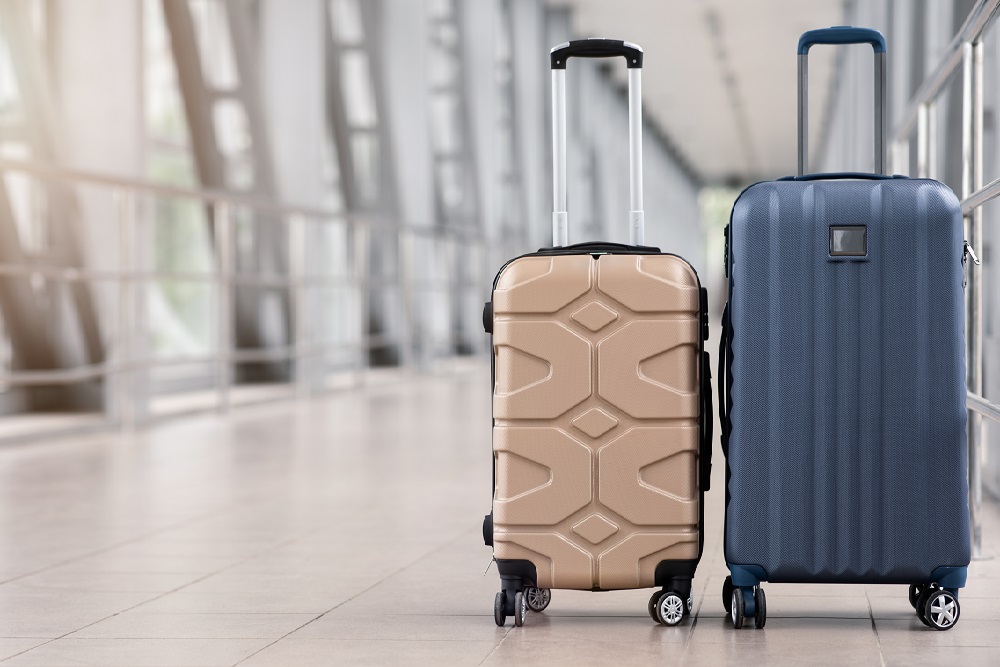Efficient packing is the be-all and end-all for successful business trips. Whether for a client meeting or a conference, every piece of luggage can impact productivity and comfort while traveling. One of the perennial debates in travel circles revolves around whether you should opt for checked luggage or stick with the tried-and-true carry-on bag.
Both options have their advantages and disadvantages, which doesn’t necessarily make the decision easier for business travelers, but makes it all the more important. In this post, we’ll dive into the details of checked and carry-on baggage and provide insights to help you make this decision with confidence.
The ins & outs of checked luggage
Checked baggage refers to bags stored in the cargo hold of the aircraft during the flight. These bags typically exceed carry-on size and weight limits, must be checked in at the departure airport and picked up by travelers from the baggage carousel upon arrival at the destination airport. While checked baggage offers certain conveniences, it also comes with some disadvantages.
Benefits of checked luggage for corporate trips
Ability to pack larger quantities and bulkier items
Checked luggage allows you to pack more generously, which is ideal for longer trips or those with specialized equipment or clothing. You can easily accommodate larger quantities and bulky items without having to worry about carry-on luggage size restrictions.
Less need to worry about weight restrictions
Additionally, checked baggage often allows you to exceed the weight limits set for carry-on bags without additional fees. This allows you to take more personal items or professional equipment without worrying about additional costs.
Convenience of not carrying items through the airport
Another benefit of checked luggage is the convenience of not having to carry heavy items through the airport. Hauling bulky or heavy bags through security checkpoints and the terminal area can be inconvenient. By checking your luggage, you can avoid this burden and focus on a more relaxing trip.
Disadvantages of checked luggage for corporate trips
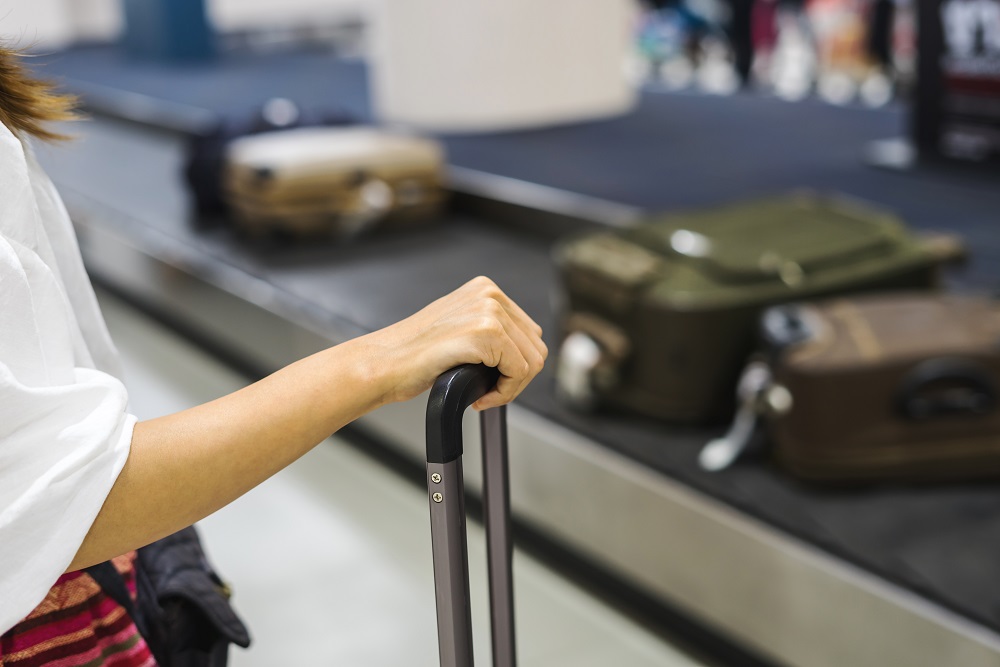
Risk of loss, damage, or theft
Entrusting your belongings to airport employees carries inherent risks, including the possibility that items may be lost, damaged or stolen during transit. Even though airlines and airports implement security measures to minimize risk, the possibility of loss or damage remains.
Time-consuming baggage claim process
Waiting for checked luggage can be time-consuming and take up precious minutes of your travel time, especially if you’re in a hurry to reach your destination. Standing at the baggage carousel, waiting for your luggage to show up, and perhaps even dealing with issues related to lost or delayed luggage can increase stress levels and affect your business travel plans.
Potential for additional fees
Furthermore, the potential additional fees for overweight or oversized checked baggage can be an unpleasant surprise. While many airlines have generous weight limits for checked baggage, exceeding these limits can result in significant additional charges, especially if you’re traveling on a budget or low-cost airlines.
Benefits of Carry-On Luggage
As the name suggests, carry-on luggage is small enough to be stored in the overhead bins or under the seat in front of you during the flight. Even though you often have to pack a little more strategically and consciously, hand luggage offers many advantages for business travelers.
Pros of carry-on luggage for corporate trips
Avoidance of baggage claim wait times
Avoiding waiting times when collecting luggage is an advantage of carrying hand luggage. With hand luggage you don’t have to wait at the baggage carousel, you can go straight to your destination. This saves time and allows you to quickly get on your way without having to wait for your checked baggage to arrive.
Reduced risk of loss or damage
Another benefit is the reduced risk of loss or damage. By keeping your belongings within reach, you minimize the risk of them being lost or damaged in transit. This gives you an extra level of security and peace of mind during your trip.
Greater mobility and flexibility during travel
Carry-on luggage also allows you greater mobility and flexibility while traveling. It simplifies travel by allowing you to move quickly through airports and use public transportation more easily. By reducing your luggage to the essentials, you have more freedom to move around in different environments and make spontaneous changes to your travel plans
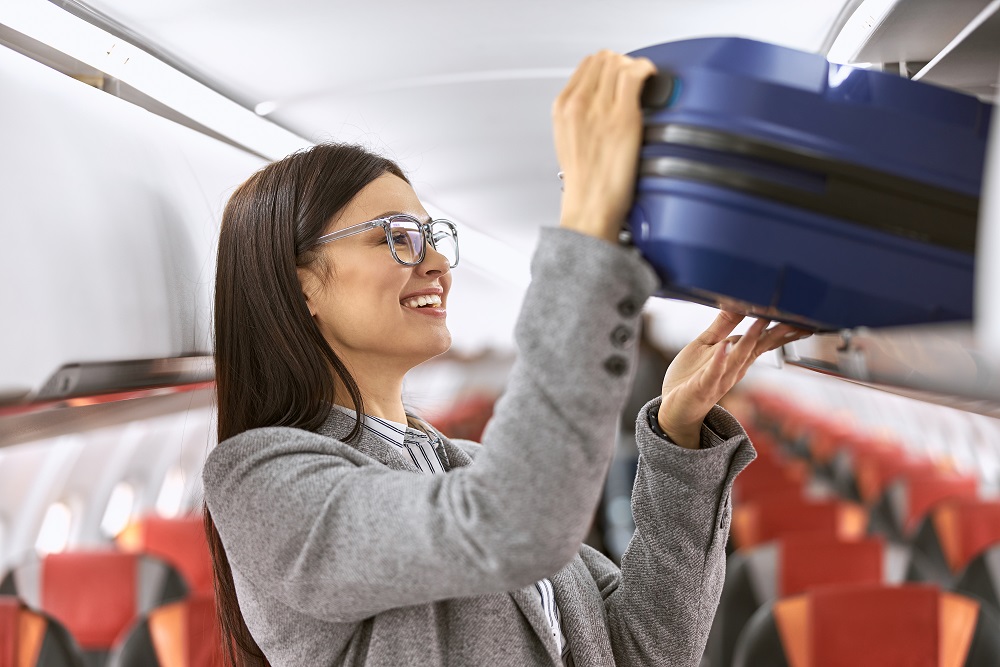
Cons of carry-on luggage for corporate trips
Strict adherence to airline size and weight restrictions
Strict adherence to airline size and weight restrictions forces travelers to pack efficiently and adhere to these guidelines. Many airlines set strict size and weight limits for carry-on luggage, especially low-cost airlines.
Limitation on quantity and size of items packed
Limiting the amount and size of items packed is a challenge with carry-on luggage. This requires prioritization, which limits the quantity and size of items brought.
Need for efficient packing and organization
Efficient packing and organization are therefore essential to make the most of the limited space in hand luggage. This requires careful planning and organization, which can be particularly challenging with bulky or specialized items.
In addition to the size and weight restrictions, liquids are also restricted in carry-on luggage. According to safety regulations, liquids may only be transported in containers of a maximum of 100 milliliters per item and must be stored in a transparent, resealable bag with a maximum capacity of one liter.
5 Factors to Consider When Choosing Between Checked and Carry-On Luggage
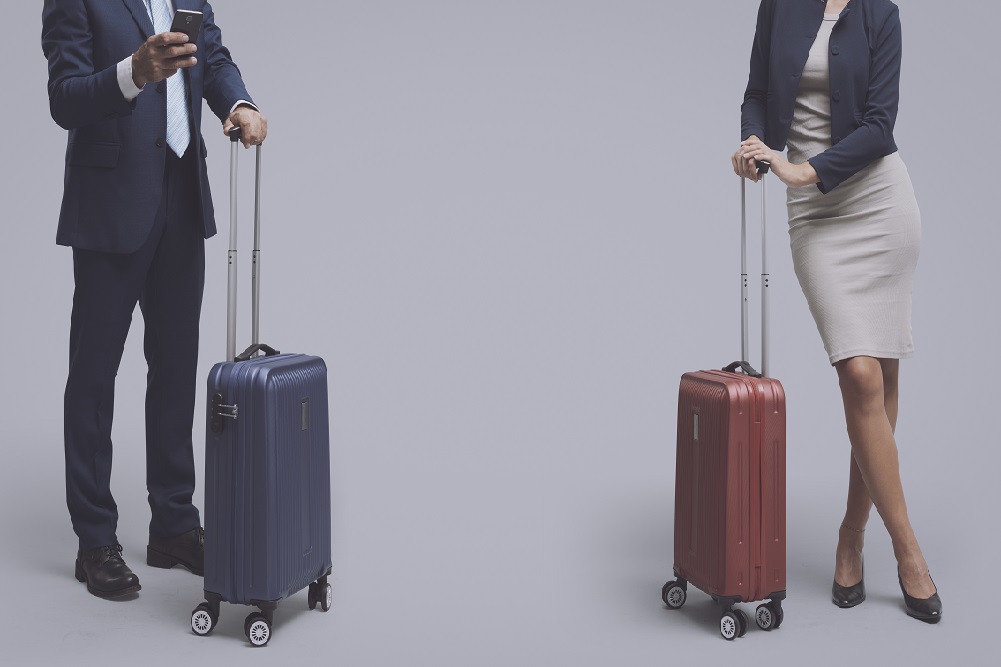
1. Trip duration and purpose
When deciding between checked and carry-on baggage, consider the duration and purpose of your trip. For shorter trips or those that require minimal space, hand luggage may be more suitable. For longer trips or those that require certain items or equipment, checked luggage may be necessary to comfortably carry everything.
2. Airline regulations and fees
Familiarize yourself with each airline’s rules and fees regarding checked and carry-on baggage. Each airline has its own policies regarding size, weight and possible fees for both types of luggage. By understanding these regulations in advance, you can avoid unexpected costs and ensure that your luggage meets the airline’s requirements.
3. Personal preferences and comfort level
Consider your personal preferences and desired level of comfort when choosing between checked and carry-on luggage. Some travelers prefer the ease of handling carry-on luggage and avoiding long waits at the baggage carousel. Others may value being able to fit all of their belongings in a larger suitcase. Choose the option that best suits your preferences and travel style.
4. Importance of items being transported
Think about the importance of the items you will be transporting during your trip. Fragile or valuable items may require the additional protection and security that checked baggage provides. On the other hand, if you have essential items or equipment that you can’t lose, it might be better to keep them in your carry-on luggage.
5. Accessibility and convenience during travel
Consider the accessibility and convenience of your luggage while traveling. Carry-on luggage gives you instant access to your belongings during your trip, making it easier to retrieve items when needed. Checked baggage is more difficult to access during transit, especially on connecting flights or multiple destinations.
Tips for Maximizing Efficiency with Checked or Carry-On Luggage
Even experienced travelers often face the challenge of choosing the best luggage option for their needs. Tips for maximizing efficiency with checked or carry-on baggage can help make this decision easier. Here’s some practical advice to help you get the most out of your luggage and make your business trip as smooth as possible.
Packing strategies to optimize space and organization
Whether you choose checked luggage or carry-on luggage, effective packing strategies can help maximize space and organization. Use packing cubes, compression bags, and rolling techniques to make the most of available space and keep your belongings well organized.
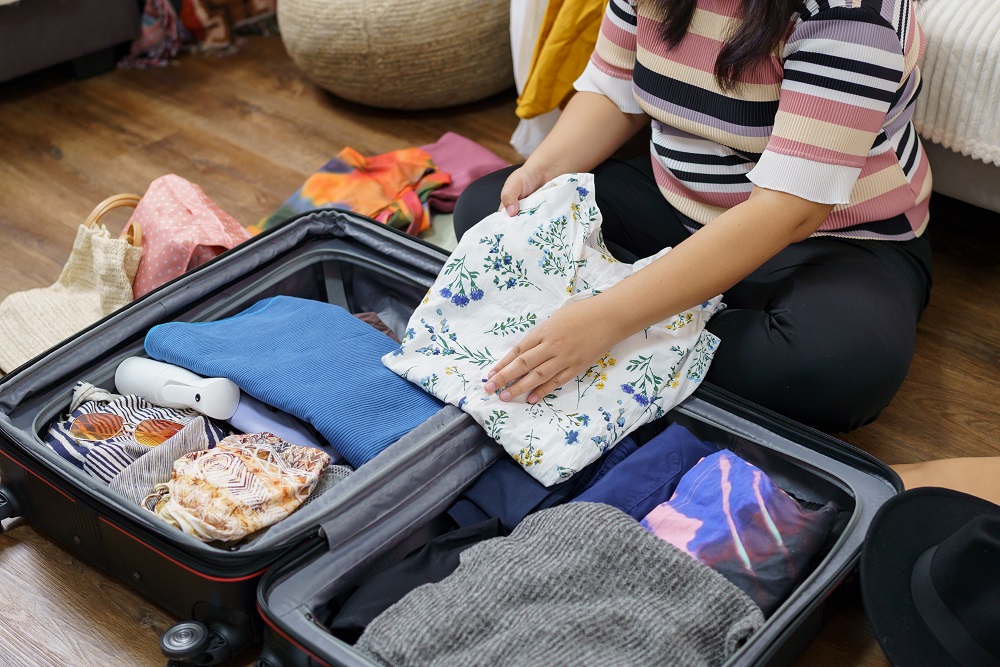
Utilization of travel-sized items and multi-purpose clothing
Minimize the size and weight of your luggage by using travel sizes for toiletries and versatile clothing items. Invest in versatile pieces that you can mix and match to create multiple outfits and reduce the need for excessive clothing and accessories.
Pre-planning for potential scenarios and needs during the trip
Think about possible scenarios and needs during your business trip and pack accordingly. Consider the climate, planned activities, and specific requirements or restrictions at your destination. By planning ahead and packing strategically, you can ensure you have everything you need without taking too much with you.
Utilizing technology for streamlined travel management
Use technology to simplify organizing your trip and reduce the stress of navigating airports and transit hubs. Travel management platforms like GetGoing offer a variety of features that can help you plan and manage your trip efficiently. These platforms allow you to book flights, accommodations and car rentals, save travel plans and even earn loyalty points, all in one place. By using these platforms, you can save time and ensure your trip goes smoothly by finding all the important details in one central location.
Checked baggage vs carry on: what to choose?
Deciding between checked luggage and carry-on luggage can be challenging for business travelers. This post explains the advantages and disadvantages of each option. While checked luggage offers more space and flexibility, carry-on luggage is often more convenient and saves time when collecting luggage.
Consider your personal preferences, the specific requirements and services for each business trip. Although checked luggage may be ideal for longer trips and transporting bulky items, carry-on luggage may be preferred for shorter trips or a more efficient travel experience. You should make an informed decision that best suits your needs and circumstances.

